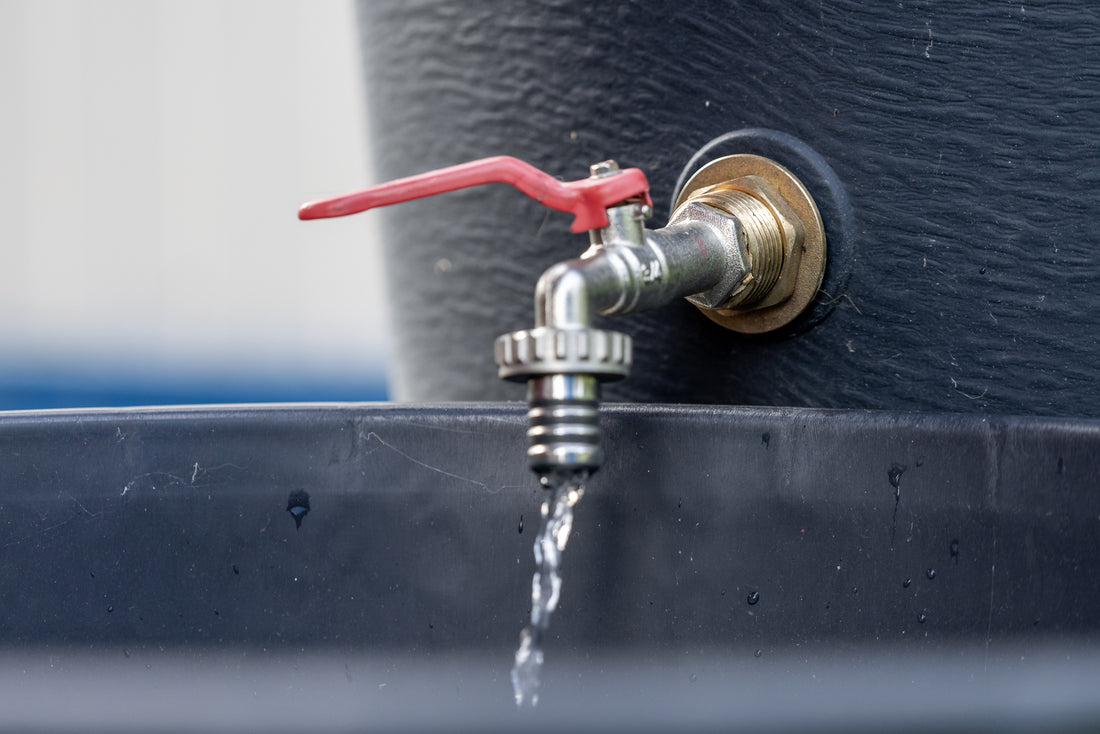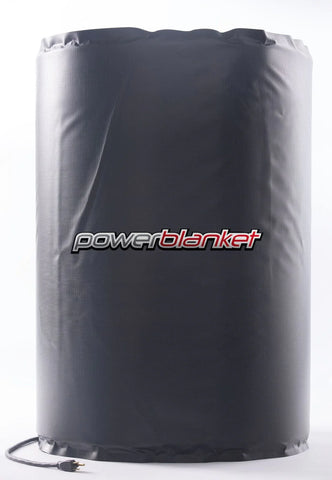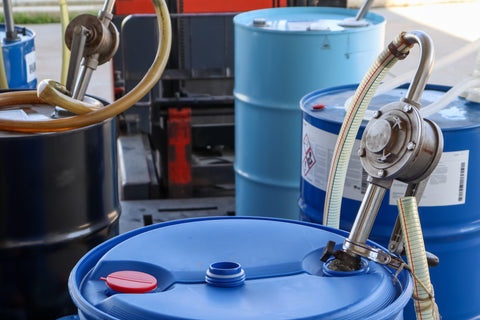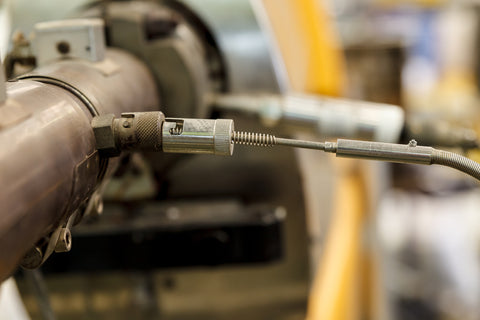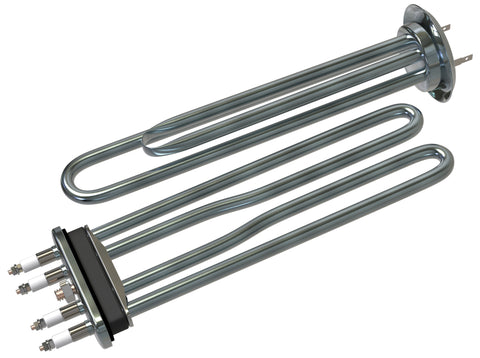The Shelf Life of Water Stored in 55-Gallon Barrels
It's a common question for anyone storing water in 55-gallon barrels: how long can you store water in a 55-gallon barrel? Having an ample water supply on hand is an important part of emergency preparedness. But exactly how long does water stay fresh and potable when stored in 55-gallon plastic or metal water barrels?
In this post, we'll cover the key factors determining water storage quality over time and provide recommendations for the maximum duration you should keep water stored in water barrels, specifically for drinking water. You'll also find tips on proper maintenance and sanitation to extend the shelf life of your emergency water supply. You save money by safely storing tap water from the garden hose in a water storage barrel, and use this article to understand safe long-term storage. Though many people start the process even further back by using rain collection barrels and eventually filtering the water themselves before storing.

Key Factors That Determine Water Quality Over Time
When storing water in 55-gallon barrels for emergency use, there are a few key factors that determine how long it stays fresh and safe to drink:
-
Temperature/Climate - Warmer temperatures promote faster bacteria and algae growth. Store barrels in a cool, shaded area.
-
Barrel Material – Food-grade plastic is ideal. Avoid metal barrels with linings that can leach chemicals.
-
Sealed vs. Open - Keeping the barrel sealed preserves quality longer than open containers.
-
Initial Water Quality - Higher quality water, like commercially bottled or distilled, will last longer.
Proper storage with these factors optimized will preserve your water supply for longer durations. But there is still a limit on how long water can be stored in barrels before needing to be replenished or purified.
Recommended Maximum Water Storage Duration
For a sealed, food-grade 55-gallon plastic barrel kept in proper conditions, water can safely be stored for:
-
Six months to 1 year - This is the standard recommended time frame for storing tap or filtered water in a fully sealed and enclosed barrel.
-
3-6 months - If stored in a container without a sealed lid, the shelf life is reduced to just several months.
The actual duration will vary depending on climate, original water quality, and storage maintenance. But one year should be considered the maximum shelf life for drinking water stored in barrels. After this point, inspect closely for any signs of algae growth or off-odors, which are signs fresh water is needed.
Maintenance Tips for Long-Term Water Storage
To get the most out of your water storage, follow these maintenance best practices:
-
Store barrels in a cool, dark place like a basement or interior closet. Avoid direct sunlight.
-
Use only food-grade plastic barrels rated for water storage. 55-gallon drums work well.
-
Keep the barrel sealed with a tight lid to prevent contamination.
-
Inspect periodically for any leaks, cracks, or damage.
-
Consider adding water preservatives if stored over 6 months.
Following these tips will help extend the shelf life so your water stays fresh and drinkable for as long as possible.
When to Replace Water Storage
Over time in storage, even properly stored water will start to show signs of contamination, meaning it's time to drain, clean, and refill barrels with fresh water. Watch for these indicators:
-
Algae growth or strange odors - This signals bacterial contamination.
-
Cloudiness or sediment - Particles can contain harmful microbes.
-
Exceeding the recommended 1-year storage duration, at most.
-
Changes in taste - An unusual taste means it's time to refresh your supply.
Stick to the standard rotation practice of refilling barrels every six months to 1 year. If any odd changes arise sooner, drain and sanitize barrels before refreshing the water. Don't take chances with old water. You can always boil your water before drinking just to be sure of its safety.

Outdoor Water Barrel Storage Options
While indoor storage is ideal for maximizing water shelf life, outdoor storage of barrels or tanks may be necessary or preferred in some situations. Here are a few tips for maintaining water quality when storing barrels outside:
-
Seek shaded areas - Keep barrels out of direct sunlight to deter algae growth. Storing under awnings, trees, or covered porches can help.
-
Consider paint or wraps - Coating barrels in reflective paint or wraps will help reflect sunlight and keep them cool.
-
Elevate above ground - Storing barrels off concrete or dirt on pallets or platforms reduces temperature transfer.
-
Monitor closely - Check outdoor barrels more frequently for any signs of contamination.
-
Treat water more often - Consider using water preservatives more often for outdoor water.
Other outdoor emergency water storage options beyond barrels include:
-
275-550 gallon water tanks - These large polyethylene tanks are UV-treated for sun resistance.
-
Galvanized steel tanks - These range from 100-1,000+ gallons. Include rainwater catchment.
-
Pond or underground cisterns - These can store thousands of gallons but require more maintenance.
Any outdoor water storage should be checked and treated regularly to keep water fresh and safe for drinking, especially in warm climates. But with proper precautions, outdoor storage can significantly expand emergency reserves.
If you live in a climate that is affected by cold and freezing weather, you want to ensure that you plan ahead before you end up in a situation where you need safe drinking water from your storage, but it is frozen and unusable. You can plan for better outdoor long-term storage by adding insulation around your containers or invest ahead of time in a wrap that can be heated to wrap around your barrel and ensure you can access the stored water.
Maintaining Fresh Emergency Water Storage
When kept in food-grade 55-gallon barrels or other more portable water containers, under the proper conditions, tap water and commercially bottled water should stay fresh and drinkable for approximately one year, at maximum. For open containers without a sealed lid, limit storage to just six months. Be diligent in maintaining your water supply. Check for any signs of contamination like odor or algae growth, which signals it's time to drain and refill barrels with a fresh supply. Follow these best practices, and your drinking water will stay clean, potable, and ready to quench your family's thirst in an emergency.


